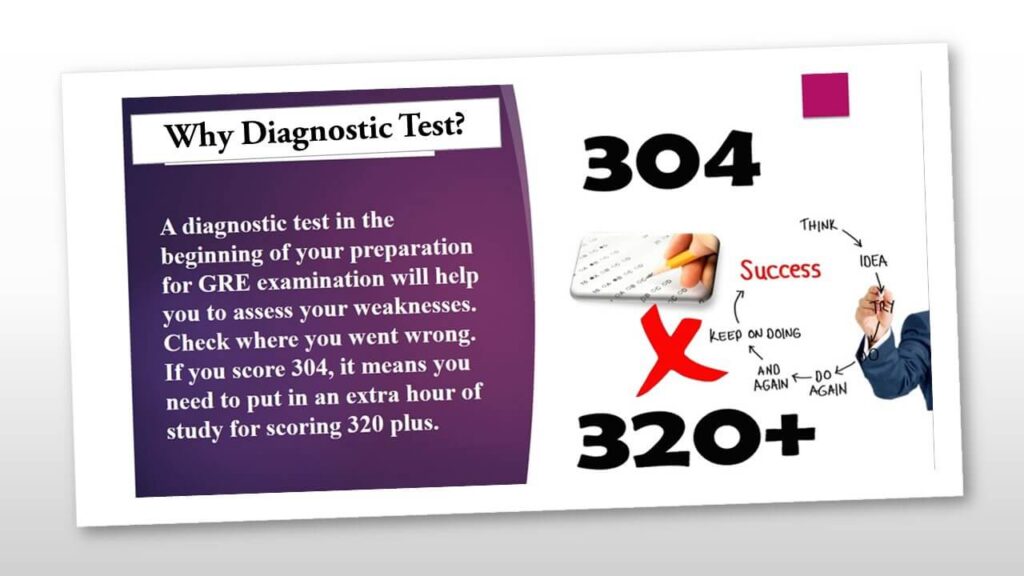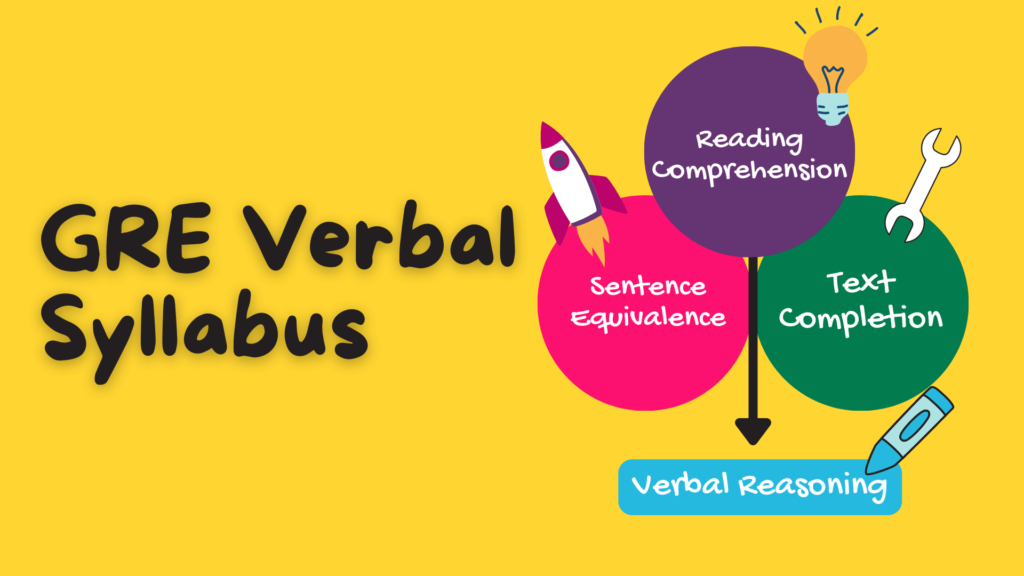There is no shortcut of getting success overnight, and this saying holds also true for GRE exam. You will often find catchy YouTube videos, some blog-posts or notes on Facebook that come with a heading “How to crack GRE e.g. 320+ score with One Month Preparation Only?” And, you all rush to that. Why? Because we want to find a shortcut.
So, the question is — “Can anyone really crack GRE with more or less 1 month of preparation?”. The answer is : Yes. But, not everyone. Perhaps, the person who scored 320+ with less then one month of preparation already have a good command over the GRE vocabularies. S/he does not know only the meaning, but also can use those words in context. Maybe s/he have developed a good reading habit, and also perfected his/her analytical skills over the years.
So, what should be the standard time line for the preparation?
There is no standard time duration to crack GRE? You should try to start preparing for the exam one year before your exam date. However, the majority of students spend between three and five months preparing for the exam. While preparing for the GRE, the biggest challenge is to maintain your motivation and momentum over this period of time. None is asking you to spend the whole day and night time to prepare for this exam, but you have to consistently invest at least 3 hrs/day in once you start preparing for GRE.
However, if English is not your first language, and most of the GRE words seem to an alien language to you. Then you might consider to extend your time duration to 6 months.

The 3 Months Plan to Crack GRE:
GRE exam has 3 major components: Quantitative Reasoning, Verbal Reasoning and Analytical Writing. You have to properly devote your time to prepare for each individual section in order to ace this test. If your study is less planned out, then you will probably end up spending more time in quantitative, less time in verbal and probably a very little in analytical. Therefore, it is necessary to prepare a detailed study plan to focus on every section in a strategic way.
Essential Materials:
- ETS Official GRE Guide 2nd Edition
- Manhattan 5 lb. Book of GRE Practice Problems
- Nova Math Bible
- Magoosh GRE Prep (you have to buy an online subscription from their website)
- Barron’s 333 High Frequency Words
- Manhattan 500 Essential Words
- Manhattan 500 Advanced Words
- ETS Powerprep Software
- Manhattan GRE online practice tests
Optional Materials:
- Princeton 1014 Questions for NEW GRE
- Barron’s GRE Workbook
- Powerscore GMAT Critical Reasoning Bible
The above list of books and online sources are usually recommended. You can start with any study materials that you like. Make sure that if no matter what materials you use for familiarizing yourself with questions, you should understand the underlying concepts and develop your own technique for solving similar problems.
Week 1 & 2: Take a Diagnostic Test
Take a full length, realistic practice test to have a clear idea about your current analytical skills in both quantitative and verbal section. In most of the cases, student do fairly well in quantitative than verbal in their first attempt. The full length test will give you the insights about your strengths and weakness. It will also help you to design your own study plan to crack GRE within 3 months.

Make sure that you take the practice test under conditions as similar as possible to those you will experience on test day i.e. without distractions or interruptions, and obviously without the aid of a dictionary that will help you to find the meaning of a unknown word. This will also help you to familiarize yourself with the test format and timing. While you will review the answers, the explanations will help you to identify your strengths and understand why you made mistakes. Research shows that being tested on material not only measures your performance but actually helps you to learn.
Assuming, you are done taking the diagnostic test, and now you know on which section and topics you need to focus more. So work your way through as many of Math and Verbal concepts as possible. An effective learning strategy is to follow up topic by topic by practicing all the questions from the ETS Official Guide.
Along with that, start working on learning vocabulary. Start learning 10–15 words/day from the high frequency word list. Also, read two articles from Scientific American/Atlantic Monthly/Economist. List those words that you don’t know, and find them in vocabulary.com to learn about the usage of the words. May be you can come up with your own customized flash cards.
Week 3 & 4: Review the Concepts and Finish High Frequency Word List
Within week 3 you should be able to finish reviewing all the math concepts and also should go through the techniques and methodologies for solving verbal questions. If you have bought the Magoosh premium account, then you should be done watching the videos. There are several YouTube channels that teach you GRE for free, just find any of them and finish watching them all to brush up your basics.
By this time, you will be working on your vocabulary too. If you pick 15 words/day within 28 days, from the day one, you should be able to finish 28*15 = 420 words. Along with that, you are also picking unknown words from the articles that you read everyday. So, more or less you will review around 700-800 words by the end of week four.
If you have finished the ETS official guide by the 2nd week, then from week 3 you should start solving the math problem from Manhattan 5lb GRE book. While solving any problems, first of all look at the question and try to solve it inside your head. If you can do that there is no need to solve it with paper and pencil. This mental exercise will help you to solve the easier problems within a very short time. List all the difficult problems while you solve them, and often come back to those to brush out the techniques and understanding the concepts. It will help you to prepare for the tougher math challenges on the original test date.
If you have bought any premium account from GRE prep site, then you can start solving their database. If you start solving their database, then you can use this Manhattan 5 lb. GRE book as an add-on to that. You may not need to solve all the problems from this book, rather find out the difficult ones and solve them.
I am not sure how much time will be left from your regular schedule. If you are having hard time to manage your schedule then it will be wise to focus on quantitative part only for the first month.
However, you can still manage some time to focus on verbal too. What you might do in week 3 & 4 is that review all the verbal concepts, summarize all the tips and tricks for solving different types of questions for verbal and make your own cheat sheet. Then, every other day you might exercise a full verbal test question set using your cheat sheet to ensure that you understand the solving method very well.
Week 5 to 8: The Verbal Month

The syllabus for GRE VERBAL is there is no syllabus at all.
Suppose, you worked so hard for the quantitative section, scored 165 in the real test. But unfortunately your verbal score dropped below 145. Then, you will have a really hard time to get into good schools with funding. GRE does not judge your English skill, it judges how well you can critically analyze. So it is equally important to do well in verbal section too.
You need to make sure that by the end of month 2, you should master at least 1000 GRE words. From the beginning of week 5 you should spend more time on verbal, and less time on quant. If you have brought any premium account from online GRE tutoring site, you should start solving all the questions. In the verbal part, it is quite hard to make a good score on the reading comprehension part. Usually most of the test takers find it easy to do good in text completion (TC) and sentence equivalence (SE) questions.
You will be given 1–2 single blank, 2–3 double blank and 1–2 triple blank TC questions per section and 9 SE questions across both sections. Except triple blank questions, it will be easier for you to solve the rest of TC and SE questions on the real test day. So, you might put some extra effort to make sure that you do not make mistakes while solving these type of questions on the real test day.
The next group is the Reading comprehension (RC) questions which can be broken down as follows:
1 Long passage (usually over 40 lines) — 4 questions
5–6 Short passages (less than 20 lines) — 1–2 questions each
2–3 Medium passages (between 20 to 40 lines) — 2–3 questions each
3–4 Critical Reasoning questions (short paragraphs)
One of the major problem with RC is that, it’s daunting, tedious and exhaust the test takers on the test day. Specially, the long passage which will drain your focus. So better skip that if it shows up earlier in the section. Critical Reasoning questions are not that hard like GMAT. Therefore, it should not take much time to solve along with the short passages questions. So make sure you do those correctly on the test day, and then solve the rest.
You do not need to solve mountains of questions to prepare well for the verbal. You need to acquaint yourself with the type of verbal questions, should be able to find the hidden hints or clues for solving them and most of all master all the techniques. So you should aim at solving around 300–500 questions for the whole verbal section, and that should be enough for building all the required skills.

The standard database for the verbal section is provided by the official guide of ETS. You can also solve the questions from Manhattan 5 lb GRE book. If you have brought any premium account from GRE tutoring site, then you should have another ~300–500 standard questions. So try to solve as much as you can in the second month.
Since you will be busy with the verbal, you will have less time to focus on quantitative section. My suggestion is to go to http://greprepclub.com/ or http://www.urch.com/forums/gre/ and explore the quantitative sections. You will see that everyday users are posting problems which they find difficult to solve or look for any alternative method. This is a good way to find difficult problems.
You will not have a year long time to go through all the GRE books. It is a tedious and time consuming task as well. In the forum, you will have a chance to look at almost all the difficult problems from all the available resources. You might want to spare 30 minutes a day for quant problems posted in the forum and solve them. You might keep a track of your timing so that you can sort out the type of problems that are taking much longer time than usual.
The Month before the Test Day:
Start practicing analytical writing (AW). If you don’t practice at all you will probably end up getting 3.0 in AW. However, schools like Ivy League they want at least 4.0 in this section. So if you aim for high, you must practice for this section — practice one set AW each day. Assuming, your basic is OK and if someone ask you to write something on a random topic, you can fairly do it. Then, you should not have tough time while preparing for AW section. You will find plenty of lessons online that will teach you how to prepare for AW section. Follow those lessons and keep practicing. Also, go through the sample solutions that have been scored 4/5, and see where you can improve in your writing.
In the last month, you should be taking a full test every other day for the first 3 weeks, and in the last week take a full test daily. So you will solve at least 15 full tests in the last month. Please make sure that you imitate the real test environment while you take those practice tests. Else it will be hard for you to crack GRE on the real test day.
Don’t load your head with some hundred new GRE words, only pick those unknown words from the questions that you are solving. Make sure that you also know the synonyms — it will help you to solve the SE questions easily.
Take the power-prep test on the very first day of week 9, let’s see where you stand. If you have prepared well, then you should be getting 160+ in quant and 145–150 in verbal, by then. The week before the test day, you should give 6 full length tests from Manhattan. You do not need to do extra reading in the last week. Rather you may go through the math formula and revise the vocabulary list.
On The Test Day:
There is no perfect test preparation for this type of exam. So don’t think on the test day that you could prepare better. You had 3 months time limit, and you tried your best to crack GRE. Avoid all the test preparation materials on the test day, eat a health breakfast and drink a lot of water. Show up at the test center early so that you can relax and sit for the test. Afterwards, celebrate being done.


Pingback: Best Books for GRE Preparation! - gradbunker.com
Pingback: How to Ace the GRE Analytical Writing Section? - gradbunker.com
Pingback: Free Practice Test Resources for GRE - gradbunker.com
Thx
Some really superb blog posts on this website , regards for contribution.